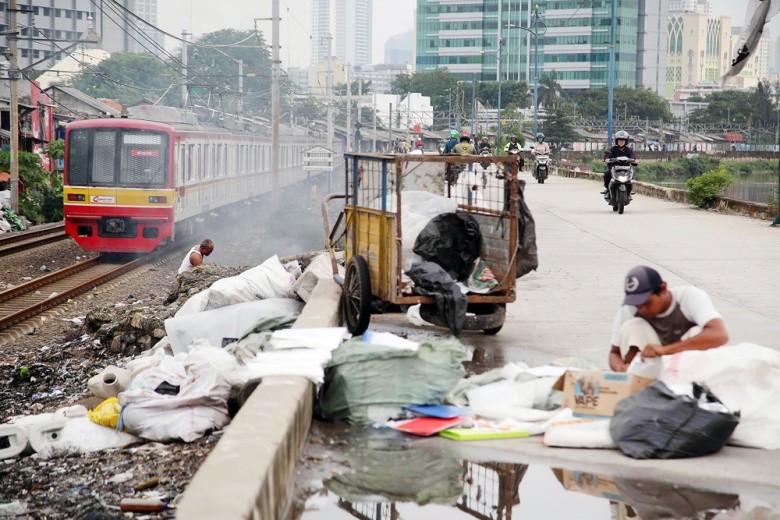Popular Reads
Top Results
Can't find what you're looking for?
View all search resultsPopular Reads
Top Results
Can't find what you're looking for?
View all search resultsUp to 12.3m people may fall into poverty in Q2: CORE
The Center of Reform on Economics (CORE) Indonesia based its estimation under the assumption that the pandemic will reach its peak by the second quarter of this year.
Change text size
Gift Premium Articles
to Anyone
T
he coronavirus-induced economic downturn might cause up to 12.3 million people to fall into poverty by the second quarter of this year if the government fails to contain the pandemic soon, researchers warn.
The Center of Reform on Economics (CORE) Indonesia based its estimation under the assumption that the pandemic will reach its peak by the second quarter of this year, while noting that the number will be higher if economic woes are prolonged.
In making three possible scenarios, ranging from the addition of 5.1 million to 12.3 million poor people, CORE researchers Akhmad Akbar Susamto and Muhammad Ishak Razak also factored in the severity of the outbreak, which has caused around 12,000 positive cases, and the degree of social restrictions.
The researchers warn that tight social restrictions will affect the earnings of people in the informal sector and the vulnerable to poor, which accounts for 25 percent of the total population or 66.7 million people.
“The three scenarios are actually equally possible, but we cannot really tell which will happen because some factors are beyond our control,” Susamto told The Jakarta Post via text message on Tuesday. “And we still have one month to see the fast-paced development.”
For example, under the better-case scenario, at least an additional 5.1 million people will fall into poverty if the situation improves and social restrictions are only imposed in limited areas on Java Island and up to two cities outside of Java.
Statistics Indonesia (BPS) data from September 2019 showed that 24.79 million Indonesians lived in poverty, equivalent to 9.22 percent of the total population. The Joko “Jokowi” Widodo administration seeks to reduce the poverty rate to 6 percent by 2024.
Previously, SMERU Research Institute estimated that there will be up to 8.5 million people falling into poverty this year as a result of the pandemic, increasing the poverty rate to 12.37 percent of the total population, a figure last seen in 2009.
CORE warns that with a possible surge in the number of poor people that could hike up to 14.35 percent of the total population, the government might have to allocate a bigger budget for social aid.
Currently, the government has earmarked Rp 110 trillion (US$7.3 billion) for social safety net programs, including the Family Hope Program and preemployment card program.
With social restrictions in place, many businesses, especially nonessential ones, are temporarily shutting down operations and laying off their workers to cut costs.
As of May 1, over 1.7 million people reported they were forced out of work by the outbreak, according to data from the Manpower Ministry.
The economists suggested an expansion of the social safety net programs by adjusting their budget. For example, the government can shift the Rp 5.6 trillion allocation from the budget for online courses of the preemployment card — a mix of semisocial assistance and skill-training programs — to cash assistance.
“Or it may be better to terminate the preemployment card program altogether,” said Susamto. “[The allocation] can be shifted to the Family Hope Program or [the Staple Food Card].”
The economists also suggested that the government lower fuel prices, which account for up to 5 percent of the poor’s expenses.
SMERU senior research fellow Asep Suryahadi previously said the surging number of poor people would definitely affect the country’s economic recovery post-pandemic.
“We cannot hope for much help from the outside [foreign countries] for our recovery. The jury’s still out on whether a quick recovery will happen or not,” he said.










